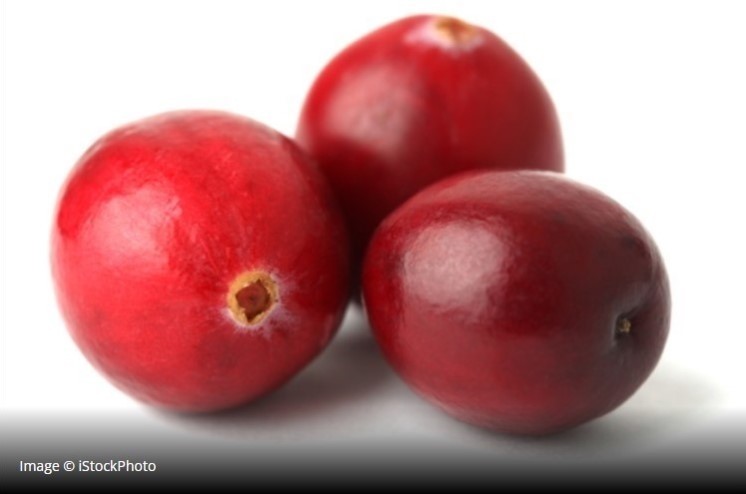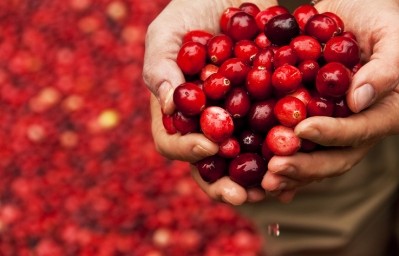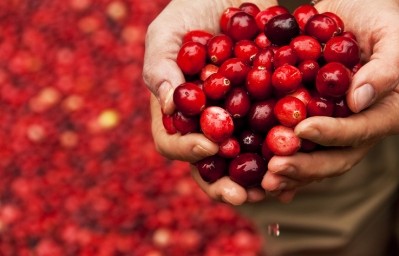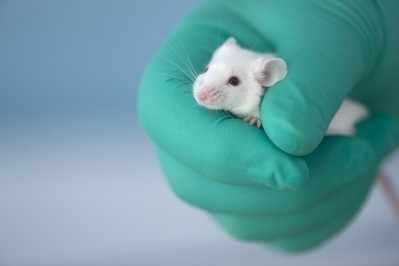Cranberry consumption may boost memory and ward off dementia in elderly, study finds

Writing in Frontiers in Nutrition, the findings have implications for brain health as well as healthy ageing as the team believe these benefits can result from consuming a cup of cranberries a day.
“Past studies have shown that higher dietary flavonoid intake is associated with slower rates of cognitive decline and dementia,” explains Dr David Vauzour, lead researcher who is based at University East Anglia's Norwich Medical School.
“And foods rich in anthocyanins and proanthocyanidins, which give berries their red, blue, or purple colour, have been found to improve cognition.
"Cranberries are rich in these micronutrients and have been recognised for their antioxidant and anti-inflammatory properties.”
Study design
The team designed a 12-week parallel randomised placebo-controlled trial of freeze-dried cranberry powder enrolling 60 older adults aged between 50 and 80 years.
Half of the participants consumed freeze-dried cranberry powder, equivalent to a cup or 100 grams (g) of fresh cranberries, daily. The other half consumed a placebo.
Cognitive assessment, including memory and executive function, neuroimaging and blood sample collection were conducted before and after the intervention.
The researchers found cranberry supplementation for 12 weeks was linked with improvements in participants' memory of everyday events (visual episodic memory), neural functioning and delivery of blood to the brain (brain perfusion).
Mechanisms of action may include increased regional perfusion in the right entorhinal cortex, the accumbens area and the caudate in the cranberry group, the study suggests.
Significant decrease in low-density lipoprotein (LDL) cholesterol during the intervention was also observed.
“The cranberry group also exhibited a significant decrease in LDL or 'bad' cholesterol levels, known to contribute to atherosclerosis -- the thickening or hardening of the arteries caused by a build-up of plaque in the inner lining of an artery,” Dr Vauzour adds.
“This supports the idea that cranberries can improve vascular health and may in part contribute to the improvement in brain perfusion and cognition.
"The findings of this study are very encouraging, especially considering that a relatively short 12-week cranberry intervention was able to produce significant improvements in memory and neural function," he added.
"This establishes an important foundation for future research in the area of cranberries and neurological health."
Study discussion
In discussing the findings, the team notes that cranberries also contain other health-promoting compounds and nutrients, including fibre and other nutrients.
This makes it difficult to determine whether it is in fact these specific polyphenols producing the health effects.
For example, nutrients such as fermentable fibres can influence gut microbial metabolism of polyphenols.
“Mechanisms such as chronic neuroinflammation, mitochondrial function and compromised vascular integrity and function are increasingly becoming understood to be key mechanisms which also contribute to age-related cognitive decline and neurodegenerative conditions,” the team adds.
“These mechanisms provide targets for interventions to curtail the disease processes contributing to age-related neurodegeneration.”
The study also writes that such mechanisms are among targets of nutritional interventions including high-polyphenol foods, particularly considering suggested bidirectional relationships with gut microbiota function.
Source: Front. Nutr.
Published online: doi.org/10.3389/fnut.2022.849902
“Chronic Consumption of Cranberries (Vaccinium macrocarpon) for 12 Weeks Improves Episodic Memory and Regional Brain Perfusion in Healthy Older Adults: A Randomised, Placebo-Controlled, Parallel-Groups Feasibility Study.”
Authors: Emma Flanagan et al.















